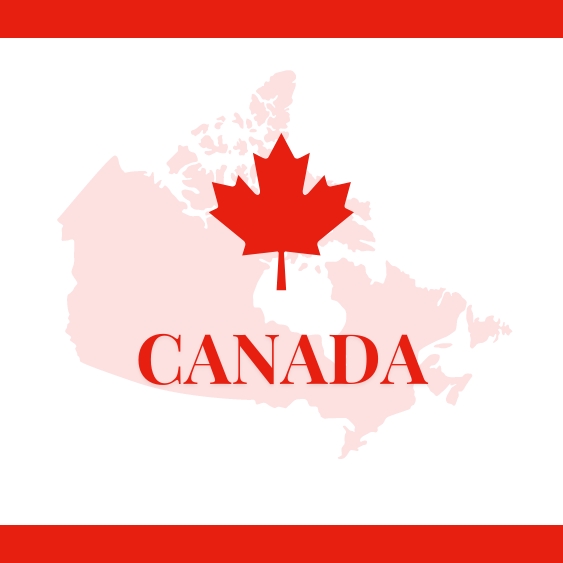Need More Information
Hotline
+1 (873) 288-6006

Canada
Sponsorship FAQ
Sponsorship FAQ
The Canadian Experience Class (CEC) program is ideal for candidates who have recent Canadian work experience and are seeking permanent residence Canada. CEC is also one of the fastest routes to Canadian permanent residence, taking as little as three to four months to process!
Know More
Canada offers sponsorship programs for permanent residents or citizens of Canada that wish to bring their loved ones to Canada. These programs allow certain family members to become permanent residents of Canada. One of the most popular streams of Canadian immigration, family sponsorship programs makes it easy for citizens and permanent residents to bring their spouse and immediate family members to Canada with reduced processing times because Canada knows that family should never be put on hold.
Spouse, Common-law, or Conjugal Partner
You may be eligible to sponsor your spouse, common-law, or conjugal partner for Canadian permanent residence, whether they are living in Canada with a valid temporary visa or residing abroad. Applicants who are living in Canada may also qualify for an open work permit, giving couples the chance to relieve some of their financial burdens.
A spousal open work permit gives sponsored individuals the ability to work in Canada while their sponsorship application is being processed. Since Canada recognizes common-law partnerships, you may be eligible to apply for spousal sponsorship if you and your partner are not married but have been living together for a period of at least one year.
To sponsor a family member, you must meet minimum eligibility requirements. Eligible sponsors must:
- be a Canadian citizen or permanent resident
- be at least 18 years old
- live in Canada, or plan to return to Canada once your spouse or partner becomes a permanent resident of Canada
- be able and willing to provide for the basic financial needs of your family member for three years
here are some cases in which a permanent resident or citizen is not eligible to sponsor. If one of the below scenarios apply, a sponsor may be ineligible if they:
- are currently in prison
- have not paid alimony or child support payments
- have declared bankruptcy and are not yet released
- received social assistance for reasons other than a disability
- failed to pay back an immigration loan, made late payments or missed payments
- have previously sponsored another relative and failed to meet the terms of the sponsorship agreement
- have been convicted of a violent crime, any offence against a relative or any sexual offence, depending on details of the case
If you are sponsoring your spouse and they have dependent children, or if you are sponsoring your adopted child, a $150 payment will be required for each child included in the application. If you are including the spouse or partner of your relative, an additional $1,050 is required. The government processing fees to sponsor a relative in Canada are listed below.
Sponsorship fee $75
Principal applicant processing fee $490
Right of permanent residence fee $515
Biometrics: $85
Total: $1165
If the sponsor resides in Quebec or intends to reside in Quebec upon the issuance of permanent residence, an additional fee of $310 CAD will need to be paid in addition to the fees mentioned above.
Minimum income requirements apply to some sponsorship applications, including parents, grandparents, eligible orphaned relatives, or those eligible under the “lonely Canadian” policy.
These sponsors must meet the Minimum Necessary Income (MNI) required for the size of their family unit, and must also provide Canada Revenue Agency-issued Notices of Assessment (NOA) as proof that they have met the required MNI for at least three consecutive years.
Unlike most other forms of Canadian sponsorship, you do not need to demonstrate a minimum amount of income to sponsor a spouse. However, whenever you sponsor a family member to Canada, you must sign an undertaking in which you promise to provide financial support for the basic needs of your sponsored family member. This undertaking is required for all sponsorship applications and acknowledges a sponsor’s promise to repay social assistance benefits paid to the sponsor and their family member(s) for a period of 20 years. A supplementary undertaking will need to be signed if the sponsor lives in Quebec.
The length of the undertaking depends on the category of sponsorship. For spousal sponsorship (including spouses and common-law or conjugal partners), the length of the undertaking is 3 years from the day the sponsored individual becomes a Canadian permanent resident.
Canadian citizens or permanent residents who are sponsoring their dependent children are not required to meet the Minimum Necessary Income (MNI), provided that their dependent child does not have any children of their own. If the dependent child being sponsored has dependent children of their own, the sponsor must meet the MNI required for their family unit size.
To sponsor a family member other than a spouse or partner, applicants must meet MNI requirements. While a job is not necessarily required, sponsors must provide proof of sufficient income from the past three years to support their sponsored family members.
Sponsorship applications take approximately 12 months to process from start to finish. They are typically processed within 12 months but they can take longer depending on the nature of your case.
If you have a complicated case, or the visa officer requires additional proof of your relationship, your application may experience delays.
The best way to ensure your sponsorship application is processed as quickly as possible is to make sure it is done right the first time. The lawyers and legal professionals at HGC have helped thousands of spousal sponsorship candidates.
If sponsorship is not an option, your relative may be eligible under another Canadian immigration program. Take our free online assessment today to find out what immigration options are available to you or your family members.
There is no limit to the number of eligible family members a Canadian permanent resident or citizen can sponsor. However, applicants must submit separate applications for each eligible family member sponsored.
The federal government gives Quebec more autonomy in determining who will settle in their province. For this reason, permanent residents or citizens that reside in Quebec must first apply to the Quebec Ministère de l’Immigration, de la Francisation et de l’Intégration (MIFI) for approval to sponsor their eligible family member. MIFI is responsible for approving a sponsorship undertaking for sponsors living in Quebec.

